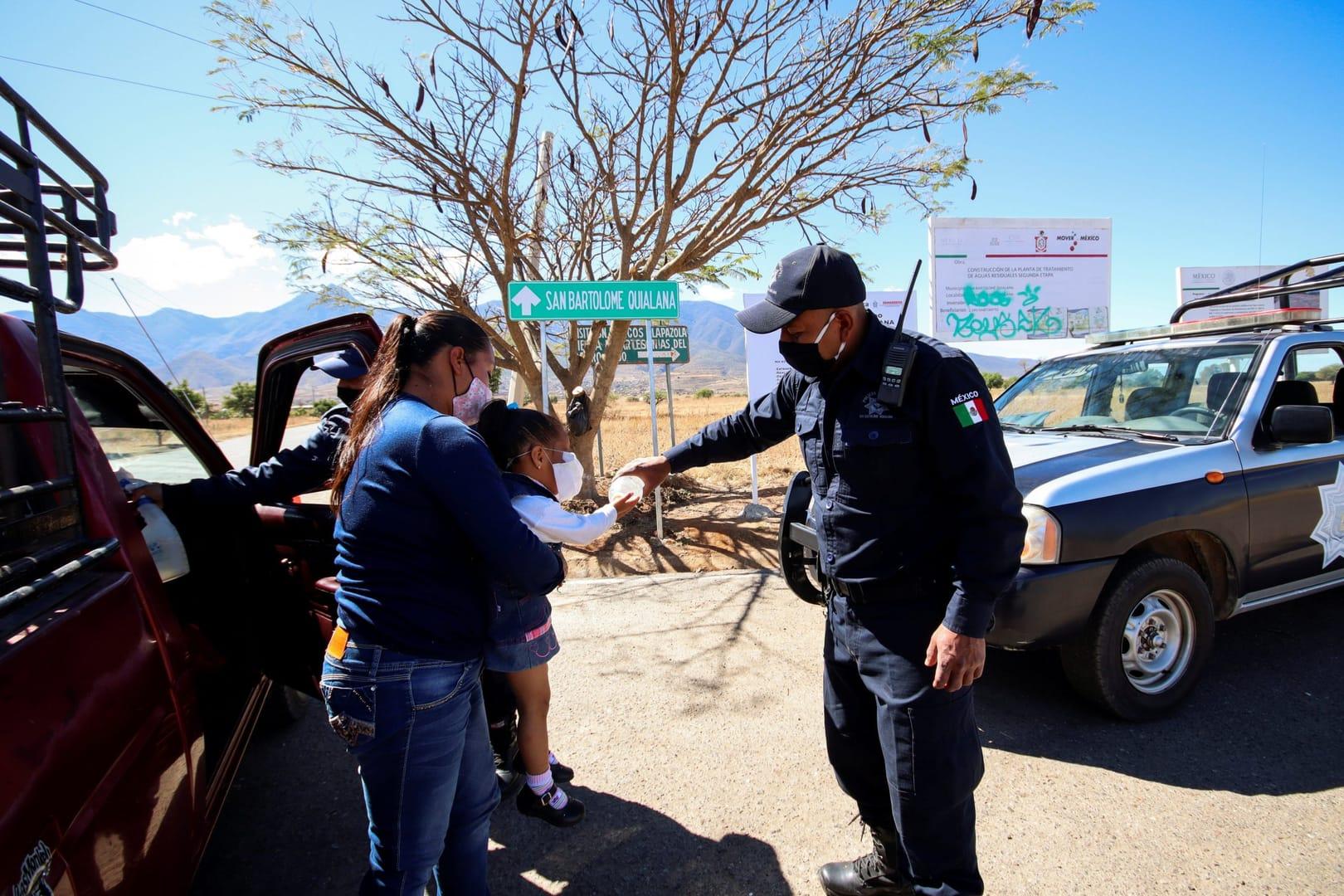MEXICO CITY — The Mexican bishops’ conference announced a month focused on health issues — such as mask use, social distancing and other measures — to reinforce the basics of staying safe during the COVID-19 pandemic. The campaign also will promote vaccinations against the coronavirus and urge people to wait their turn so health workers and vulnerable populations can be protected first.
“People are encouraged to be vaccinated, for their own good and the good of everyone else,” Archbishop Domingo Díaz Martínez of Tulancingo, president of the bishops’ health ministry, said at a Jan. 29 news conference.
“We also encourage everyone to be patient and wait their turn. There’s no need to seek privileges, we have to wait. We have the right (to be vaccinated) and we have to follow the (vaccination) plan.”
Mexico’s bishops announcing a health campaign 11 months after the country’s first confirmed coronavirus death illustrated the difficulties in confronting the COVID-19 pandemic.
It also reflected the reality of Mexico’s pandemic situation, which has worsened throughout December and January. In Mexico City, people with severe symptoms are being turned away from hospitals, basics like oxygen are in short supply and doctors say they lack the proper drugs for intubating patients.
“Those of us who work in the pastoral care of health are concerned that infections continue to increase, and we cannot remain indifferent to the suffering of our people,” Díaz said.
“We feel that, as a church, we can take beneficial actions in favor of our brothers, especially in prevention. As a church, we don’t have many means to cure, but we do for prevention.”
COVID-19 has hit Mexico hard with 32,729 deaths in January, its most lethal month so far. The country’s total death toll of more than 158,000 recently surpassed India and is now third-worst in the world, trailing only Brazil and the United States. Mexico performs little testing, meaning many cases go undetected.
Coronavirus infections have hit the church hard, too; the Catholic Multimedia Center has counted the deaths of 154 priests, nine deacons, five bishops and five nuns.
“I was infected,” Díaz admitted, “and you really suffer.”
Dioceses have taken steps to slow infection, such as limiting seating at Mass and canceling large celebrations, including the Feb. 2 feast of Our Lady of San Juan de los Lagos, the second most-visited shrine in the country.
“We’ve taken prevention measures with the help of experts,” said Bishop Eugenio Lira Rugarcía of Matamoros. “This has meant we’ve not had many cases, and we have been able to keep churches open.”
The bishops’ health promotion month comes as the federal government continues with vaccination campaigns, which have brought a raft of complaints over using the vaccines for political purposes and front-line health workers not receiving their second dose as scheduled.
President Andrés Manuel López Obrador also announced Jan. 24 that he tested positive for COVID-19, revealing the information after he had taken a commercial flight home from north-central Mexico, where he held meetings with close collaborators and checked on government projects.
The bishops’ conference offered prayers for the president, who appeared in a video Jan. 29 to say he was recovering and his symptoms were mild.
López Obrador, who often has downplayed the pandemic’s impact and does not wear a mask, speaks often of faith and has offered hopeful messages over the past year, even as the death toll spiraled upward. Catholic leaders hoped he would spread health advice, too.
“I hope and we all hope that the president comes out of this situation well and with a different attitude (and) a thought-out plan,” said Father Rogelio Narváez, national director of Caritas, the Catholic Church’s international charity federation. “In the case of the government … there wasn’t any design, a true plan.”
López Obrador has responded to the pandemic’s economic impact with austerity and promises to not take on new debt or bail out failing firms. Mexico has spent just 1.1 percent of its gross domestic product on its pandemic response, according to the Economic Commission for Latin America and the Caribbean. The president has promoted families as a safety net in times of crisis, though the bishops said in a statement last year that families’ resources were stretched and domestic violence was prevalent.
“Mexico has emerged from many crises, and we believe it can emerge from this one, too,” said Narváez. “The only thing that pains us (is) there is no strategy for us to unite around. Everyone is going to get ahead as best they can on their own.”
Mexico’s economy contracted 8.5 percent in 2020 after not expanding in 2019. A survey from the Institute for Investigations into Development with Equality at the Jesuit-run Iberoamerican University estimated poverty had increased from 42% of the population in 2018 to 51 percent in December 2020.
Caritas responded to the pandemic by providing care packages. It later established listening lines and initiatives with foundations and the private sector to provide jobs and retraining initiatives.
But resources are scant. Tithes have diminished and many parishes are “selling tamales” to pay the bills, Narváez said.
Still, he said, “We’ve learned that people’s generosity is alive and isn’t exhausted.”














